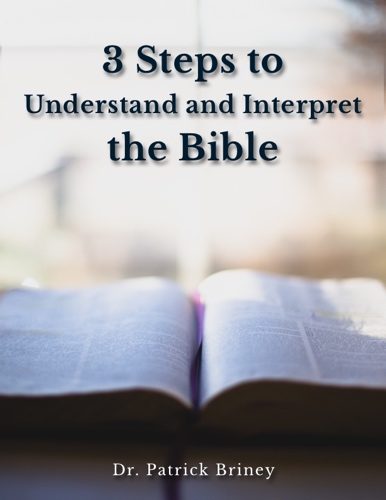The problem with the Old Testament was that it could not make those who abide by it perfect. Hebrews 8:7 says,
“For if that first covenant had been faultless, then should no place have been sought for the second.”
The righteousness described by the law was not the problem. And the letter of the law was not the problem.
The problem was that the unrighteous could not be made righteous by the law. This means that no one could be saved from their sins by the law. Under the law, sinners are doomed to condemnation. Hebrews 8:8 explains,
“For finding fault with them, he saith, Behold, the days come, saith the Lord, when I will make a new covenant with the house of Israel and with the house of Judah.”
The covenant between Israel and God, known as the Old Testament, was Israel’s stumbling stone. They looked to the law for salvation rather than to God.
For some, finding fault with the law is the same as saying that the law is sin. But Paul corrects this error of thought in Romans 7:7, saying,
“What shall we say then? Is the law sin? God forbid. Nay, I had not known sin, but by the law: for I had not known lust, except the law had said, Thou shalt not covet.”
The law is good. But the law is insufficient to save our souls, and this is what makes the law faulty. It is not sinful; it is insufficient.
The insufficiency of the law to save souls is what makes the statement of Romans 8:2 so significant. It says,
“For the law of the Spirit of life in Christ Jesus hath made me free from the law of sin and death.”
The Old Testament was a covenant of death. It governed Israel’s relationship with God based on law. It is no surprise then that Israel’s history in the Bible is one curse after another.
The lesson to be learned from the Old Testament is that you do not want a relationship with God based on law. You will die. This is how not to be saved.
In contrast, the New Testament (the second sought for according to Hebrews 8:7) governs one’s relationship with God based on mercy and grace. The New Testament church was designed to portray this.
Rather than stoning offenders of the law, sinners are forgiven seventy times seven.
Church discipline is practiced to protect the reputation and power of Christ’s message, but repentant prodigal sons are always welcomed back into the fold.
Thus, the fault in the Old Testament required the necessity of a New Testament’s second testament that could save the souls of sinners. That would make it much better than the first.
But the old was not without significance. It was the old that taught us to find another way. “Wherefore the law was our schoolmaster to bring us unto Christ, that we might be justified by faith” (Galatians 3:24).



